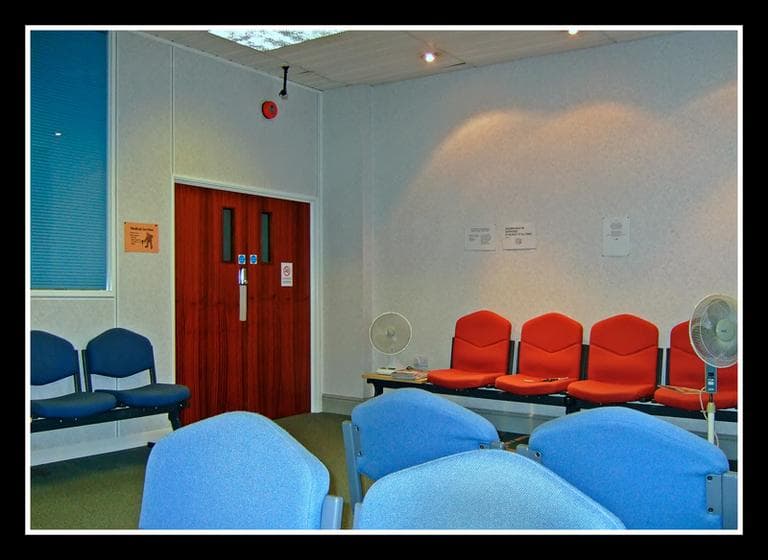Advertisement
Helping Primary Care Treat Minds As Well As Bodies

Sometimes, medical doctors view their patients only from the neck down.
But that is unwise: Over 70% of primary care visits today are related to psychosocial issues - things like anxiety or depression manifesting themselves as chronic pain, stomach aches or heart palpitations.
And, according to Dr. Russell Phillips, director of the Center for Primary Care at Harvard Medical Center, these underlying problems create all sorts of complications. "Mental health conditions complicate the treatment of everything else," he said. "If someone has diabetes and depression, symptoms of their depression may make it harder for them to manage their diabetes."
Of course, the problem is exacerbated by patients not even being aware that they have any underlying conditions. Doctors have to try to solve problems that "patients can't even name," said Phillips. He gave a quick assessment of the system today: overworked primary care physicians struggle to treat conditions in limited time and often with limited resources.
Phillips envisions a system for addressing all of these issues that would begin with mental health:
More extensive mental health screening would allow doctors to detect conditions, even if patients don't come in and complain about that condition specifically. In this ideal scenario, the doctor would connect the patient to social workers for counseling and continue monitoring how the patient was doing, proactively scheduling followup appointments and reevaluating treatment plans. "It changes the trajectory of care, with more on-going monitoring, more screening, and better treatment that makes sure patients are responding well and adjusting appropriately if they're not."
But how would such a transition be possible? On Monday, Harvard Medical School's Center for Primary Care announced an initiative that could be a roadmap for getting from here to there. According to Dr. Phillips, the initiative, which starts with six hospitals in the Greater Boston Area, would place mental health resources like social workers right within primary care practices. It would establish a network of specialized mental health workers like psychiatrists and psychopharmacologists, giving physicians better access. And through ongoing conferences and conversation, doctors would learn how to use the new resources and expand coverage to the rest of the nation.
The initiative is funded by a two-year grant, though its organizers foresee it actually saving money in the future as it reduces hospitalizations and other costly measures.
Dr. Phillips estimated that changes could take effect as early as January 2014. That's particularly timely, as states across the country are figuring out the details of implementing the Affordable Care Act, and 30 million more Americans will be covered, swamping primary care physicians nationwide. Though Massachusetts is well ahead of the curve, Dr. Phillips sees the ACA going into effect as another chance for the state to model what it's learned and share its best practices.
This program aired on August 20, 2013. The audio for this program is not available.